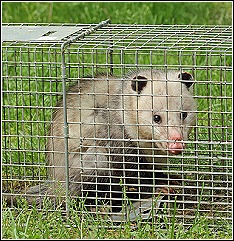Nuisance Wildlife Relocation Study
Introduction
This important study looks at the impact of translocation on wildlife, it also discusses the status of translocation as a wildlife control method, and how the restrictions on such methods vary from state to state.
When it comes to general discussions regarding relocation studies, this study points out that it is most often the impact of translocation on the welfare of the animal, and the success of translocation methods as a wildlife control technique, that are most often discussed - while the ecological impact on the release site itself is seldom considered.
Consequently this study makes an effort to provide a comprehensive look at the effects of translocation, including the effects on the animal, its success as a method, and its effects on the ecosystem of the release area - including the risk of introducing disease to the release environment, and how that can also put human and pet populations at risk.
In its concluding statements, the study encourages wildlife control professionals and the general public to minimize or eliminate translocation methods when possible. They point out that the translocation of nuisance wildlife should not be confused with wildlife managment projects that are conducted specifically to control animal populations within given areas. What should be considered truly "humane" is discussed, and recommendations made accordingly.
This study does a good job of illustrating why "trap and relocate" methods may not always be the most humane choice for solving nusiance wildlife problems, but it is also important because it presents concerns regarding the negative impact of translocation on human and ecological interests.
We encourage you to read the full study for yourself, if you are short on time, the nine point conclusion at the end sums it up well.

1242 SW Pine Island Rd., Suite 310
Cape Coral, Florida 33991-2126
help@totalwildlifecontrol.com














